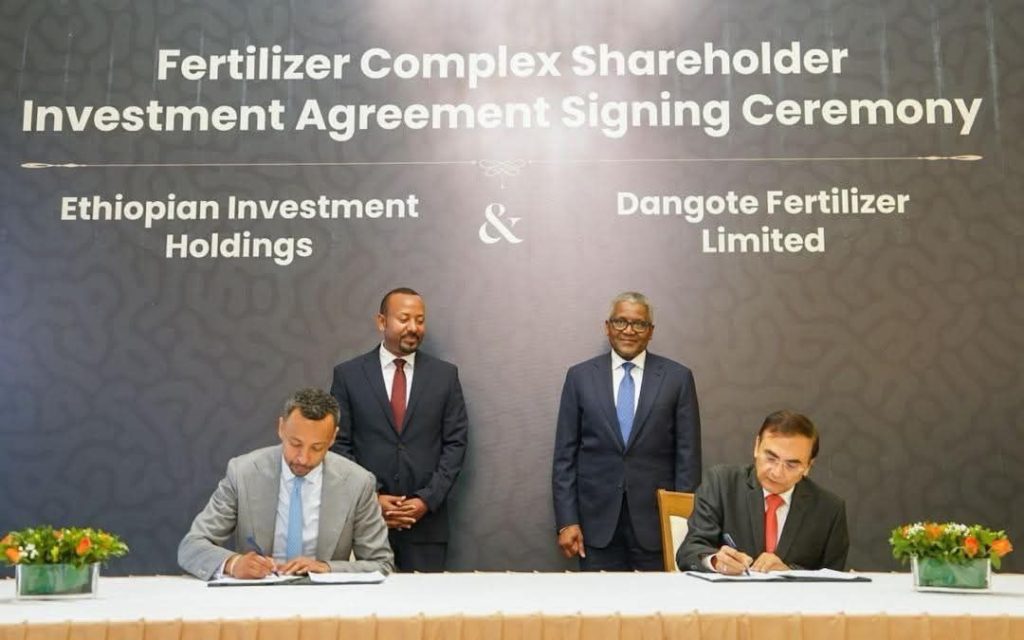Africa’s richest man, Aliko Dangote, has signed a $2.5 billion agreement with the Ethiopian Government to construct one of the world’s largest single-site fertiliser plants in Gode, located in the Somali Regional State of Ethiopia.
The agreement, formalised on Thursday, is between Dangote Group and Ethiopian Investment Holdings (EIH), the government’s strategic investment arm. Under the deal, Dangote Group will hold a 60% equity stake, while EIH will retain 40%.
According to EIH, the plant will rank among the world’s top five urea production complexes, with a capacity of up to three million metric tonnes annually. The project, slated for completion within 40 months, will also include pipelines transporting natural gas from Calub and Hilala gas fields, with scope for future expansion into ammonia-based fertilisers.
READ ALSO: Dangote Refinery drops N100bn lawsuit against NMDPRA, NNPC, oil marketers
“This landmark agreement marks a significant milestone in Ethiopia’s journey toward industrial self-sufficiency and agricultural modernisation,” said EIH CEO, Dr Brook Taye. He emphasised that the project will enhance energy security, boost productivity, and provide immense value to Ethiopian farmers.
Ethiopian Prime Minister Abiy Ahmed celebrated the deal on social media, calling it a major step towards national food sovereignty. He noted the project will create local jobs and ensure a stable fertiliser supply for farmers.
Aliko Dangote described the partnership as part of a broader vision to industrialise Africa and strengthen agricultural productivity across the continent. He highlighted that the 60-40 ownership structure ensures significant Ethiopian involvement and benefit.
READ ALSO: They’ll never work again – Dangote slams $18bn refinery repairs
This latest venture follows Dangote’s successful fertiliser facility in Lagos, Nigeria—Africa’s largest—which began operations in 2022 and has positioned Nigeria as a key urea exporter.
The Ethiopian plant is expected to significantly reduce the country’s dependence on imported fertilisers and position it as a major exporter across East Africa.



